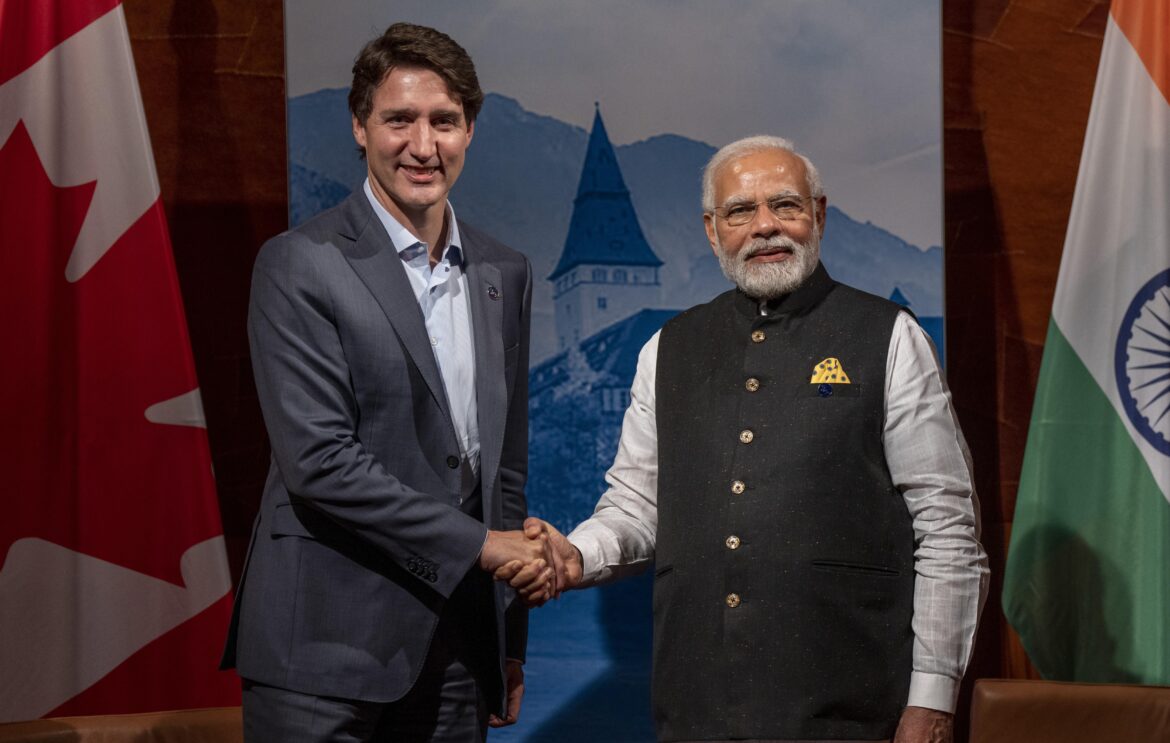On 18 June 2023, Canadian Sikh activist and separatist leader Hardeep Singh Nijjar was shot and killed by two masked individuals. Three months later, Canadian Prime Minister Justin Trudeau announced that Canadian intelligence was investigating credible allegations regarding the potential involvement of the Indian government in Nijjar’s killing. The announcement was met with fierce pushback from the Indian government, who labelled them as “absurd.” If proven true, this would mark a significant issue for the Canadian government, as well as its NATO allies, who have been attempting to sway India away from BRICS, an intergovernmental organisation of emerging economies, in order to undermine China and Russia’s influence on global politics.
Before discussing the ongoing diplomatic spat between India and Canada, it is important to understand the background of Nijjar’s assassination, including details regarding the Khalistan movement as well as Nijjar’s involvement. The Khalistan movement calls for an independent Sikh state named Khalistan created from the Sikh-majority Punjab region of India. Advocates of this movement point to India’s Hindutva (Hindu nationalism) policies and growing suppression of religious freedoms as core reasons why a sovereign Sikh state must be established. India strongly opposes this proposal and labels various groups and people related to the Khalistan movement as terrorists. Hardeep Singh Nijjar is one of those people.
Though born in India, Nijjar moved to Canada after being arrested in 1995 under suspicion of association with the armed insurgency occurring in Punjab. Nijjar attempted to gain refugee status in Canada, citing political torture and arbitrary arrest, but was rejected on the grounds that some or all of his documentation had been forged. It wasn’t until 2007 that he became a Canadian citizen. Though viewed as a human rights activist who utilised solely peaceful means by many Sikhs, the Indian government maintains that Nijjar was a terrorist associated with the Khalistan Tiger Force and responsible for “many terrorist acts in India.” Nijjar is not unique either, as Canada is home to the largest Sikh diaspora community and India has repeatedly accused the Canadian government of harbouring numerous alleged terrorists.
At the age of 45, Nijjar was shot dead by two masked gunmen outside of a gurdwara (Sikh temple) in Surrey, British Columbia. Police were slow to respond and the assailants have yet to be identified, though an investigation by the Washington Post suggests that at least six individuals were involved as well as two vehicles. The incident was notable and made headlines but was quickly forgotten by the wider media. It wasn’t until Trudeau’s announcement three months later that the story broke into the mainstream, with its geopolitical implications dominating the conversation.
On September 18, Trudeau announced the allegations without providing further information or evidence. He had brought up these concerns privately with Indian Prime Minister Nerendra Modi during the G20 Summit the week prior. The discussion was described as tense by analysts and impacted trade relations. In the address, Trudeau went on to state that “involvement of a foreign government in the killing of a Canadian citizen on Canadian soil is an unacceptable violation of our sovereignty.” Indicating potential diplomatic and political repercussions for India if the allegations are proven true. The address led to the expulsion of a top Indian diplomat from Canada, while 41 Canadian diplomats were ordered to leave India.
Aside from Canada, other Western nations have been hesitant to support Trudeau’s allegations. Though members of the Five Eyes intelligence alliance (USA, UK, New Zealand, and Australia) have offered resources to aid in the investigation, none have openly backed up Canada’s claims. There may be numerous reasons for this, but one particularly stands out: the BRICS. India is a longstanding economic partner of Russia and China, both of whom are viewed as enemies to the Western world. In recent years, the United States and its allies (including Canada) have been trying to pull India away from Chinese and Russian spheres of influence onto a more Western one, viewing India as a potential ally or tool to use against China and Russia. This has been met with limited success. While China and India may not have the best diplomatic relations, they have solid and mutually beneficial economic ties which makes it hard to imagine India openly turning against China. In addition, India and Russia are considered particularly close, as the two nations formed a strong strategic relationship during the Cold War. Despite these barriers, the majority of the West remains seemingly eager to court India, which almost certainly has a significant influence on why they have been less than eager to back Canada’s claims regarding the killing of Nijjar.
It is important to note that these claims made by the Canadian government are unsubstantiated and Trudeau has yet to present any public evidence. Regardless, he would not have made these accusations and jeopardised a key strategic partnership without seeing at least some reliable evidence to suggest a link between the Indian government and Nijjar’s killing. On the contrary, it seems plausible that the Canadian government may be actively withholding evidence from the public to get a better grasp of the situation and not threaten the already straining ties with India which, as previously mentioned, is viewed as vital to the West’s China and Russia deterrence policy. Though that is pure speculation at this point.
Edited by Susana Baquero Sarah
Alexander Morris-Schwarz is a third-year student at McGill University where he is majoring in Political Science with a minor in Communication Studies. Alexander is currently a staff writer for Catalyst and he is interested in international relations and imperialism.

